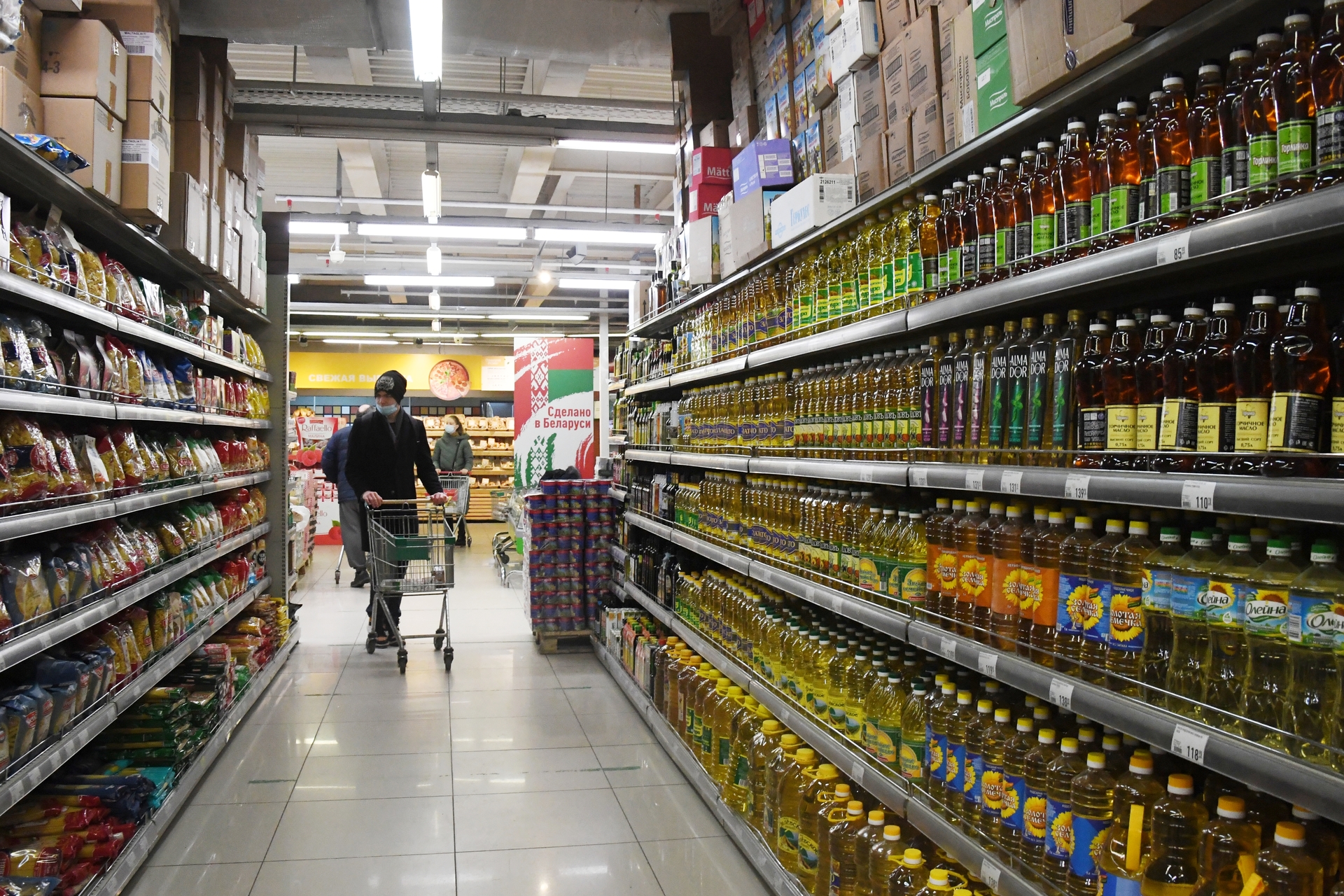In July 2021, world food prices fell by 1.2%.
This was announced on Thursday, August 5, by the Food and Agriculture Organization of the United Nations (FAO).
According to experts, the corresponding price index last month reached 123 points.
"The decline recorded in July is due to the reduction in prices for cereals, dairy products and vegetable oils," - says the FAO report.
According to the organization, food prices in the world are falling for the second month in a row after a sharp increase in the spring of this year.
Thus, in May, the food price index exceeded 127 points and reached its maximum value since September 2011.
This state of affairs was largely due to the consequences of the pandemic, says Georgy Ostapkovich, director of the Center for Market Research at the Institute for Statistical Studies and Economics of Knowledge at the Higher School of Economics.
“To support their economies during the pandemic, most countries launched printing presses and increased monetary emissions.
This policy led to an acceleration in world inflation, as a result of which all real assets began to rise in price, including food.
Now inflationary risks are decreasing, "said the interlocutor of RT.
However, as the specialist noted, the easing of quarantine restrictions and the resumption of the work of most enterprises led to an increase in global food production.
Meanwhile, the demand for a number of daily consumption products has not changed.
In these conditions, a surplus of products formed on global trading floors, which also contributed to a decrease in prices, Ostapkovich added.
RIA News
© Vitaly Ankov
In addition, the high rates of vaccination of the world's population also played in favor of reducing the cost of food.
Pavel Sigal, the first vice-president of the all-Russian public organization of small and medium-sized businesses "Support of Russia", shared this opinion in a conversation with RT.
“Advances in medicine lead to an increase in the number of vaccinated citizens.
As a result, workers without fear of infection can fully fulfill their work duties, including those who work in the agro-industrial complex and work in the fields, ”the analyst emphasized.
In addition, weather factors positively influenced the dynamics of global food prices, Ilya Bereznyuk, managing partner of Agro & Food Communications, told RT.
Currently, such a severe drought as in 2020 is no longer observed in key producing countries, which has a positive effect on crop volumes, the expert explained.
On the same wave
According to analysts, if the positive trend continues in world markets in the coming months, the increase in the cost of products may slow down in Russia as well.
In June, the annual growth rate of consumer prices in Russia accelerated to 6.5%, while the level of food inflation rose to 7.9%.
The last time similar indicators could be observed in 2016.
Against the background of rising world prices for goods, many Russian enterprises found it more profitable to supply their products abroad.
In turn, active food exports led to a shortage of some goods in Russia, as a result of which prices within the country increased further.
This opinion was expressed in an interview with RT by the chief analyst of the TeleTrade Group of Companies Pyotr Pushkarev.
“The decline in world prices, especially for cereals and vegetable oil, will partly reduce the appetites of domestic producers who earn money from exporting products.
In addition, the problem is gradually being solved due to the action of state programs to support agrarians, ”the expert added.
The topic of increasing food prices was also touched upon during the annual direct line with Vladimir Putin.
The Russian leader recalled that the government has already taken a number of measures to resolve the problem.
In particular, agreements were concluded on freezing prices for some products, subsidies were issued to a number of manufacturers, and export duties were increased.
Moreover, the Russian authorities continue to monitor the cost of food on a daily basis, noted earlier the press secretary of the Russian President Dmitry Peskov.
“Measures are constantly being taken.
This does not mean that we can insure ourselves against any abrupt situations in certain regions, in certain stores.
But in the country as a whole, certain containment mechanisms have been formulated and are in effect, ”the Kremlin spokesman emphasized.
According to Ilya Bereznyuk, in the near future, seasonal factors may also exert pressure on food prices in Russia.
Against the background of the new harvest, the supply of fruits and vegetables should increase in the country.
“Now new harvests of the current year are beginning to enter the Russian market.
As a result, prices for the so-called "borscht set", vegetables and fruits are falling.
Moreover, traditionally expensive products are getting cheaper.
For example, the cost of red caviar began to fall due to good forecasts for sturgeon catch this year, ”the specialist noted.
Against this background, a noticeable deceleration of food inflation in Russia may begin as early as late summer - early autumn, Georgy Ostapkovich believes.
According to the expert, by the end of 2021, the average growth rate of food prices will decrease from the current 7-8% to 6.6% -6.8%.
“World inflation in the structure of a similar indicator in Russia is about 40%. Accordingly, with a decrease in the value abroad in our country, the growth rate of food prices will also slow down. At the same time, in order to stabilize the cost of food for a long time, it is necessary to minimize dependence on foreign goods, as well as foreign equipment and feed in the agricultural sector, ”concluded Ostapkovich.

